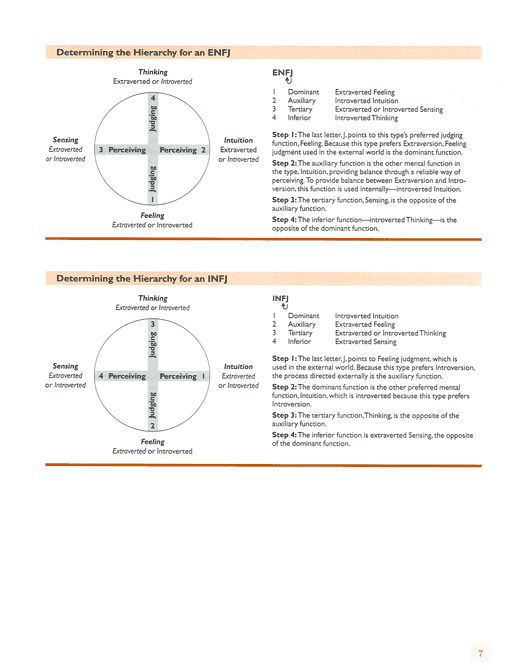sculpting
New member
- Joined
- Jan 28, 2009
- Messages
- 4,148
PS-Curious Feeling i wanted to offer an apology as the title was phrased somewhat generically but you were actually making an individual request for info. Sorry to become theoretical on your thread! I always suggest to folks who feel pulled between letters to read up on the descriptions and just take what is of value and not get caught up on the details given it is a bit of a shoddy psuedo-science anyways 
For me-as an illustrative case to represent how one might use Beebe functions-I have had moments where I suspect I have used Ni and even Fe and perhaps even Ti. They can be expressed in extremely negative ways-under stress and great pain.
I have also felt Ni and even bits of Fe used in more healthy ways, but I have little control over these moments and they feel VERY different from the normal way I would approach the world, Fe especially. However the Ni can be very useful and complementary-but is very limited to certain aspects of Ni and is nothing like the super power Ni that an Ni dom displays. The Ni moments have been around since I was 25 or so, the Fe moments only in the last year at 33.
I think there is great value in appreciating that even if we can tap into those less used functions-we will never use them the way a native user would-thus a person very skilled in using a function not normally ours can give us a worldview and information that we cannot see innately. They slice and dice the world at different angles and have built up different histories that can be extremely insightful-if we can admit the legitimacy of those perspectives and also admit forgiveness of others for not having insight into those perspectives and values that are innately ours-thus my interest in the topic.
So my posts above were more directed at the generic theory and not your specific example as I suspect it is by far best to look at expression of beebe functions in a very individual case by case way, so my apologies for generalizations applied.
For me-as an illustrative case to represent how one might use Beebe functions-I have had moments where I suspect I have used Ni and even Fe and perhaps even Ti. They can be expressed in extremely negative ways-under stress and great pain.
I have also felt Ni and even bits of Fe used in more healthy ways, but I have little control over these moments and they feel VERY different from the normal way I would approach the world, Fe especially. However the Ni can be very useful and complementary-but is very limited to certain aspects of Ni and is nothing like the super power Ni that an Ni dom displays. The Ni moments have been around since I was 25 or so, the Fe moments only in the last year at 33.
I think there is great value in appreciating that even if we can tap into those less used functions-we will never use them the way a native user would-thus a person very skilled in using a function not normally ours can give us a worldview and information that we cannot see innately. They slice and dice the world at different angles and have built up different histories that can be extremely insightful-if we can admit the legitimacy of those perspectives and also admit forgiveness of others for not having insight into those perspectives and values that are innately ours-thus my interest in the topic.
So my posts above were more directed at the generic theory and not your specific example as I suspect it is by far best to look at expression of beebe functions in a very individual case by case way, so my apologies for generalizations applied.


